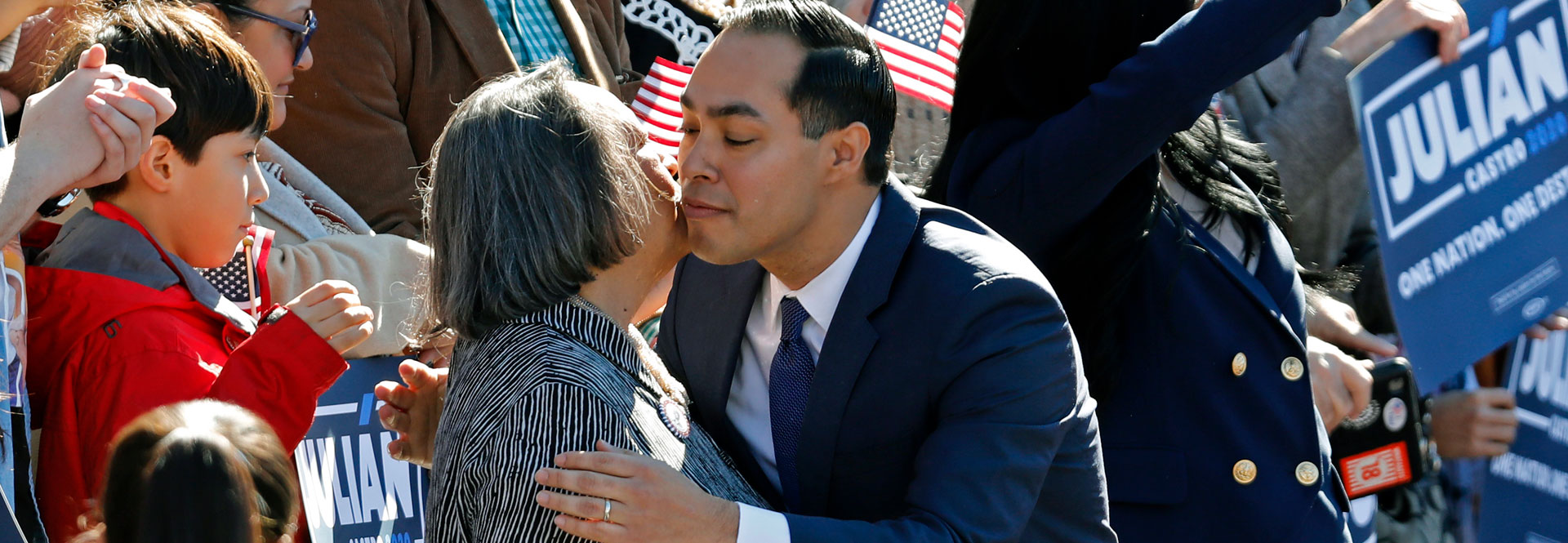
To live and to remember
Transgender rights are not guaranteed in the U.S. But presidential candidate Julián Castro and leaders at local and national levels are bringing the discussion…
On Nov. 20, for the 20th year in a row, the world observed Transgender Day of Remembrance to honor the lives of transgender people who have been murdered in acts of anti-transgender violence.
But as many Americans watched the fifth Democratic primary debate, none of the ten candidates on stage mentioned the date’s significance, nor the alarming rates of violence against transgender people, particularly transgender women of color.
Offstage and online, though, presidential candidate Julián Castro did speak to the significance of the date and the need for greater discussion and action on rights for the transgender community in the U.S. Though he didn’t qualify for the debate, he tweeted:
It’s almost the end of the debate, and we still haven’t heard anything about the #TransDayofRemembrance.
— Julián Castro (@JulianCastro) November 21, 2019
Every day trans folks are subject to violence simply for being who they are. We must combat that violence and keep trans people safe.#DemDebate #JuliánDebates
It wasn’t the first time that the former mayor of San Antonio and Secretary of Housing and Urban Development in the Obama Administration upheld transgender rights as part of his platform.
In the first Democratic primary debate on June 26, Castro included the transgender community in discussion of abortion access, and well before Castro even stepped on to the national stage, he was an advocate for LGBTQ+ rights as mayor of San Antonio.
His work as an ally of the transgender community and the LGBTQ+ community as a whole is, he said in a recent interview in Out Magazine, thanks to his mother, Rosie Castro, a longtime Chicana activist and organizer.
RELATED CONTENT
“I grew up with this sense that we should strive toward equality for everybody, no matter who they are. That is what we should do in public service,” said Castro.
“It feels personal to me because in my life in a different way, I know what it’s like to be on the other end of not having equality,” he added.
In an interview with the San Antonio Current from October 2009, Rosie Castro herself explains it this way:
“I never felt I was a radical. I don’t think it’s radical to insure that the rights and privileges of being an American are extended to everybody. Emiliano Zapata said, ‘El respeto del derecho ajeno es la paz — Respect of others’ rights is peace.’ For many of us that’s kind of the feeling in San Antonio — live and let live,” she said.
It’s an important principle that is echoed in many of the stories of transgender people featured in this week’s cover story.
As local activist and leader Deja Lynn Alvarez tells us:
“People think transgender individuals are these deviants. We're not, we want the same things as everyone else. And if people would stop discriminating against us, they would allow us to be able to live our lives just like everyone else.”










LEAVE A COMMENT:
Join the discussion! Leave a comment.